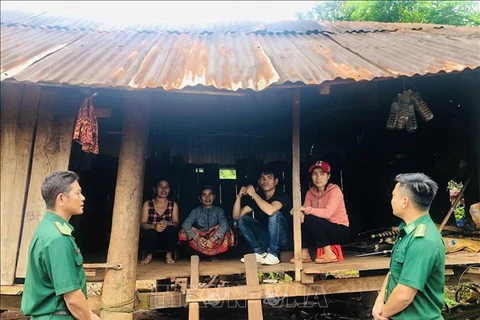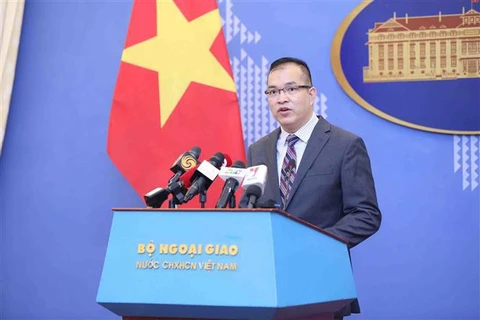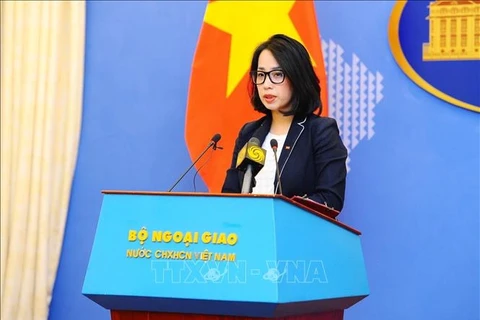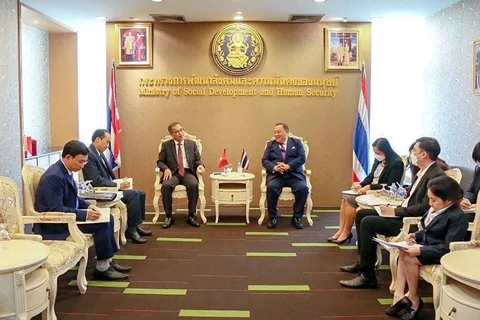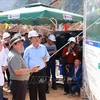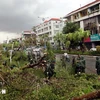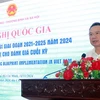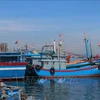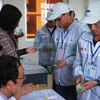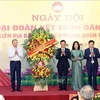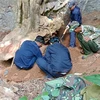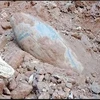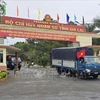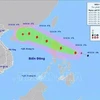 Women from ethnic groups in Muong Khuong district, northern province of Lao Cai are told about human trafficking prevention and control. (Photo: VNA)
Women from ethnic groups in Muong Khuong district, northern province of Lao Cai are told about human trafficking prevention and control. (Photo: VNA) Hanoi (VNA) – The International Organisation for Migration (IOM), in collaboration with the Ambassadors of Australia, Canada, the UK, and the US to Vietnam, has produced a video to dispel misconceptions about human trafficking and to raise public awareness of this issue, as well as to call for more actions to protect the victims of the evil, on the occasion of the World Day Against Trafficking in Person (WDATIP) that falls on July 30.
Also joining the video is one of the most influential key opinion leaders in Vietnam, former Miss Universe Vietnam, and Top 5 Miss Universe worldwide in 2018 H'hen Nie who has 1.9 million followers on Facebook and 100,000 followers on Instagram. It aims to amplify the message among the younger generation.
WDATIP this year focuses on the theme "Reach every victim of trafficking, leave no one behind".
In the clip, ambassadors, the head of the IOM Delegation, and H’hen Nie emphasised that human trafficking happens all around us every day.
To effectively combat the evil, it is important to have a correct and comprehensive awareness of the problem, as well as to look at human trafficking from different lenses and understand its impact. The influencers also call on public for taking the matter to individuals, recognise the signs, and notify authorities if someone witness others or find themselves in danger.
In Vietnam, there are widespread misconceptions including that only women and girls experience human trafficking; human trafficking does not happen online, climate change is not related to human trafficking; human trafficking only involves moving, traveling, or transporting a person across state or national borders; or traffickers only target victims they don’t know.
Therefore, observing the Vietnam’s Day Against Trafficking in Persons and WDATIP, the head of the IOM Delegation, the ambassadors, and H'hen Nie raised the message “A human being is not a commodity. Every human is a gift” to call on the community to join hands to fight human trafficking, to protect and empower victims so that they can start a new life and develop their full potential.
Trafficking in persons has particularly serious consequences on human rights, negatively affects the political security of each country, and can lead to illegal acts such as illegal immigration, fake documents, prostitution, and drug trafficking. Since 2013, the United Nations has identified human trafficking as one of the four most dangerous crimes in the world.
The Law on Human Trafficking Prevention and Control that was passed by the 12th National Assembly and took effect from January 1, 2012, has created an important legal basis for the prevention, detection and handling of human trafficking crimes in Vietnam. Over the last 10 years, Vietnam has achieved positive results in curbing the crimes.
However, in recent times, the crime of human trafficking has tended to increase and become more complicated. Meanwhile, in some localities, relevant legal regulations have not been exercised strictly. The work of preventing, detecting and handling human trafficking crimes and the rescue and support for trafficked victims still have limitations./.
